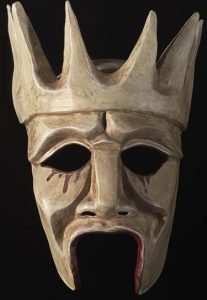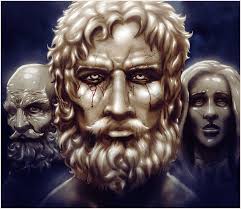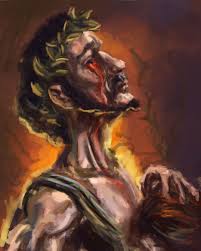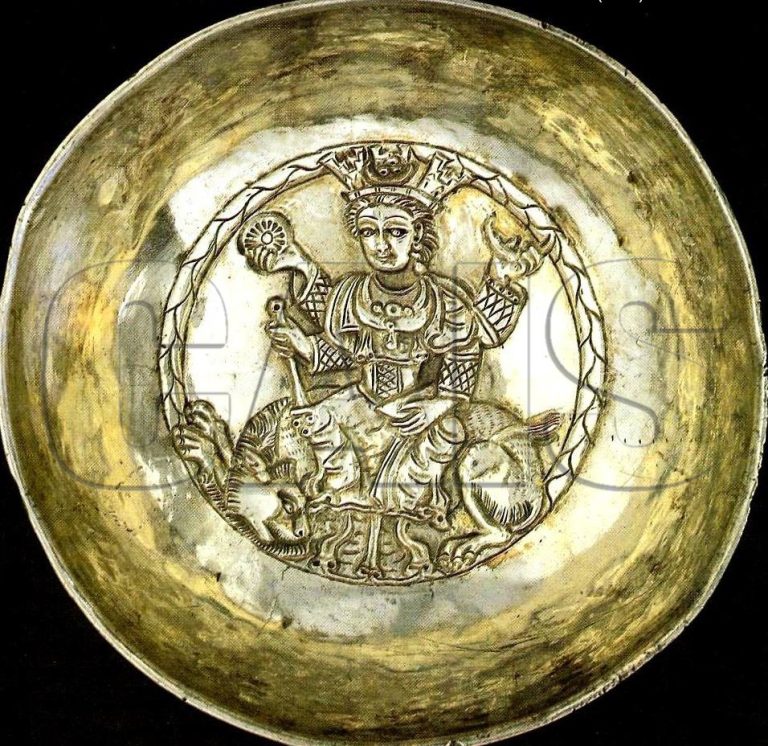“OEDIPUS. Apollo. Apollo. Dear
Children, the god was Apollo.
He brought my sick, sick fate upon me.
But the blinding hand was my own!
How could I bear to see
When all my sight was horror everywhere?”
— OEDIPUS REX, EXODOS
The “blind seer motif” or the “irony of vision” is a phenomenon of perception that repeats itself throughout the Western literature since five centuries preceding Christ. The duality and dichotomy of sight vs. blindness is a recurring metaphor for the rivalry between truth and ignorance that can officially be termed as the “paradox of sight” according to literary criticism. That brings into question the inequation of the physical sight against the insight of the soul.

Mythologically speaking, the god Apollo or the sunlight has ever since been recognized as the unveiling of the truth. That said, in Oedipus Rex, as long as there seemed to be light in sight, the truth that would ultimately lead to a blasphemous state reflected concealment. However, as the succession of scenes led the protagonist to a willful “castration”, that is disabilitation, the light of truth seemed aroused to kick in Oedipus’ sight, or more preferably insight. The experiential situation that devoured the vision of the principal character were to ultimately lead to the following:
“OEDIPUS. Do not counsel me anymore. This punishment
That I have laid upon myself is just.
If I had eyes,
I do not know how I could bear the sight
…
If I could have stifled my hearing at its source,
I would have done it and made all this body
A tight cell of misery, blank to light and sound:
So I should have been safe in my dark mind
Beyond external evil.”
The best of the whatness going on here can be quite perfectly explained via a widely shared attribution to Dr. Maya Angelou’s remark in which she also pinpoints one of Shakespeare’s favourite Hamlet lines, “Thus conscience doth make cowards of us all”: “People are afraid to be pried loose from their ignorance because they know it better than they know their body odors” (Angelou, interview).

Oedipus Rex cries out his imperfection, yet in the declaration he makes, the message cried out by him shares notion of the same cowardice that both Shakespeare and Angelou had referred to.
Based on the gatherings of literature throughout the passage of time, this phenomenon known as the “paradox of sight” can be conclusively termed as an “archetypal feature” that has existed in Man’s collective unconscious. Another way to put it would be by relocating, in the selfsame play, the kind of character that is epitomized by Teiresias, the wise prophet. It can be a universal indication carried up to now within tales and stories by the human ancestors, according to which there exists a visionary inside each and every one of us human beings: Truth then through one way or the other finds its way like a growing sapling through nooks and crags to reveal itself and if one is seized by it in fear, like Oedipus, rather than welcoming it with bare hands, so suffering is promising as long as the upholding of resistance is to be the case.

By “castration” of sight, whether the principal character be Oedipus the king, Gloucester in King Lear, Rose Hudd in Pinter’s The Room, or the “husband” in Raymond Carver’s The Cathedral, it is meant that travelling into the inside (id) is demanded of the character. Such a dark and (dis)organized place inside the human entity is so full of neurotic complexes that in challenging matters struggle to reflect themselves through the subject person’s verbal or action slips. The unconscious is a still unconquerable territory for humanity where truths to their rawest structure exist, which are often held in denial of recognition or repression and/ or suppression by the outside forces and the saboteur subject person respectively themselves.
References:
Angelou, Maya. Why People Hold On To Ignorance by Maya Angelou. Dec. 2024. https://youtube.com/shorts/tPMjSRbsb-s?si=NHqlyOQ3H7V6Emwr.
Shakespeare, William. Hamlet. Edited by David Bevington and David Scott Kastan. Bantam Classics, 1988.
Sophocles. Oedipus Rex, translated Unknown.
Maytham Khaghani




